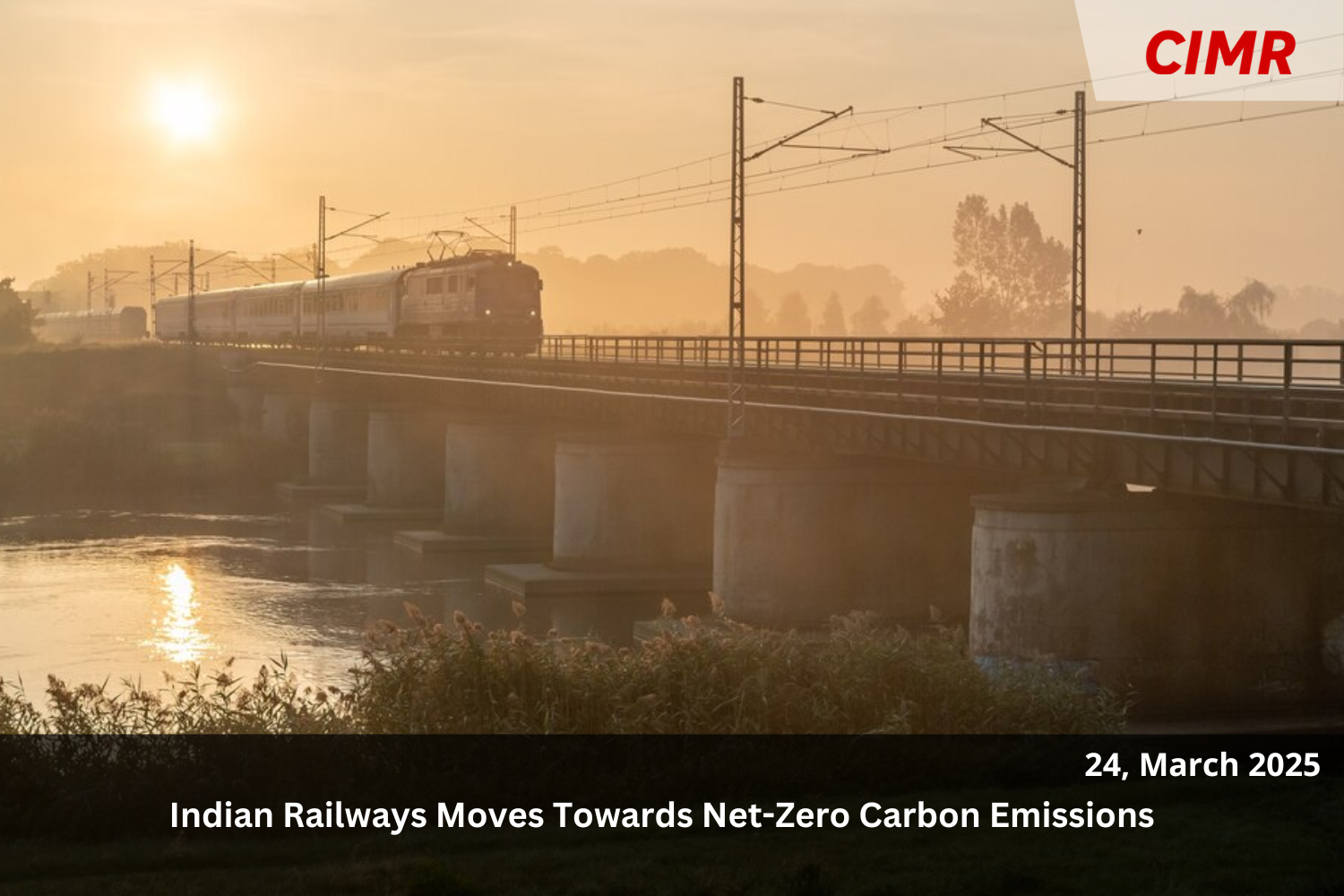Indian Railways is working towards becoming a net-zero carbon emitter by replacing fossil fuels with renewable energy, expanding track electrification, shifting cargo and passengers from road to rail, and exploring hydrogen-powered trains. With 98% of its broad gauge network electrified, the railway electrification efforts, electrifying 45,922 route kilometers between 2014 and February 2025.
These initiatives position Indian Railways to achieve net-zero carbon emissions for Scope 1 in the coming years. The completion of electrification projects depends on various factors, including forest clearances, shifting of infringing utilities, statutory clearances, geological and topographical situation, and number of working months in a year due to climatic conditions.
To enhance renewable energy, a combination of solar, wind, and other renewable sources is planned based on strategic power procurement planning. The Indian government has approved an ₹11,440 crore equity infusion for Rashtriya Ispat Nigam Limited (RINL) to sustain its operations and ensure business continuity.
Work on Jamshedpur’s Interstate Bus Terminal has begun, aiming to streamline regional transportation. Adani Energy Solutions Ltd has secured a ₹2,800 crore power transmission project in Gujarat to supply green energy for Mundra production. Rail Vikas Nigam Ltd (RVNL) has invited bids for the rehabilitation of Kolkata’s Bascule Bridge, estimated at ₹96.94 crore,.
The Union Minister of Power and Housing & Urban Affairs, Shri Manohar Lal, reviewed Odisha’s power sector with senior state officials in Bhubaneswar. Kobelco Construction Equipment India (KCEI) reached a significant production milestone by rolling out its 20,000th excavator at its manufacturing plant.
The Ministry of Road Transport and Highways (MoRTH) has initiated the development of two new metro corridors for Gurgaon. The Noida Authority has begun work on a 5.6 km elevated road from Chilla in Delhi to Mahamaya Flyover in Noida. Tata Power has surpassed 1,50,000 rooftop solar installations across India, cementing its leadership as the nation’s No. 1 rooftop solar provider.
The Mumbai-Ahmedabad Bullet Train project is transforming Ahmedabad into an Indian Railways (IR) is making rapid strides towards achieving net-zero carbon emissions by 2030, aligning with India’s broader sustainability and climate goals.
The national transporter, one of the largest railway networks in the world, is implementing a multi-pronged strategy focused on electrification, renewable energy adoption, and energy efficiency improvements. Afforestation programs and carbon credit mechanisms are being explored to offset residual emissions.
Key Initiatives Driving Sustainability
- Complete Electrification
- IR aims to fully electrify its broad-gauge network by 2030, reducing dependence on fossil fuels. As of 2024, over 85% of routes have been electrified, significantly cutting diesel consumption. The railways are investing in solar and wind energy projects, targeting 30 GW of renewable energy capacity. Solar panels are being installed at stations, train coaches, and railway buildings to power operations.
- Energy Efficiency Measures
- Adoption of energy-efficient rolling stock, including electric locomotives and Vande Bharat trains, is reducing energy consumption. Regenerative braking technology is being deployed to conserve electricity. Stations and production units are obtaining green certifications, promoting sustainable practices.
- Impact and Future Prospects
By transitioning to green energy and improving efficiency, Indian Railways aims to reduce its carbon footprint significantly. Achieving net-zero emissions will not only contribute to India’s climate commitments but also lead to cost savings, enhanced energy security, and a more sustainable Railways a global model for eco-friendly railway networK.
Indian Railways is advancing towards its goal of achieving net-zero carbon emissions by 2030 through electrification, renewable energy adoption, and energy efficiency measures. Over 85% of its broad-gauge network is electrified, reducing diesel dependency. The railways are investing in solar and wind power, targeting 30 GW of renewable capacity.
- Group Media Publication
- Construction, Infrastructure and Mining
- General News Platforms – IHTLive.com
- Entertainment News Platforms – https://anyflix.in/





